Just after lunch, there was a session to review the current state of widgets on personalized home pages. It was moderated by Jeremy Liew, a partner at Lightspeed Venture Partners. The first panelist to speak, Jessica Ewing, is Google’s product manager for the iGoogle start page, and calls her widgets "gadgets." She said users want two things when it comes to start pages: personal connections and speed. 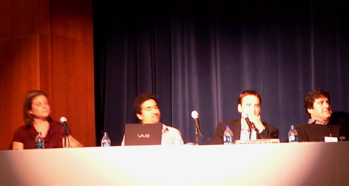
She said studies show users won’t spend more than about 100 seconds to personalize their start page. One way Google helps here is to quickly populate a gadget on a particular topic — say, astronomy — with popular sites that other users have tagged on the topic. Their "World Cup" gadget was one of their most successful to date. Her advice to gadget makers: "Create things that people are excited about and be really efficient" with space and content.
Netvibes CEO Tariq Krim spoke about his firm’s new, standardized, open platform to allow you to distribute your content. AOL’s Frank Gruber said his firm has introduced the "myAOL Personalization Suite." Pageflakes’ CEO Dan Cohen said his firm is focused on the needs of mainstream users. "They don’t understand things like RSS and widgets." He said Pageflakes is "basically a collection of widgets — that’s what we do." Running out of time, he said to be sure we saw a demo of his "Web Site Clipper" at the Pageflakes table later. In the follow-on discussion, Netvibes’ Krim seconded iGoogle’s assertion that personalization comes hard for many people. "They don’t know what they want." They also don’t realize yet that they can widgetize virtually anthing — videos, web sites, etc. iGoogle’s Ewing said that maybe half its users are neophytes, even first-time web users. AOL’s Gruber said that widgets will increasingly be created around events or other things in the context of a short timeframe, such as Major League Baseball’s playoffs. But iGoogle’s Ewing recommended that such sort-term widgets have a life of "several weeks." Pageflakes’ Cohen commented that he estimated the four companies on the panel had about 80 million personal home pages combined. Both iGoogle and AOL said they report their widgets’ stats publicly. Pageflakes’ Cohen emphasized that page views is not the metric to use. "You must understand the purpose of the widget to measure it. There’s no one-size-fits-all metric."
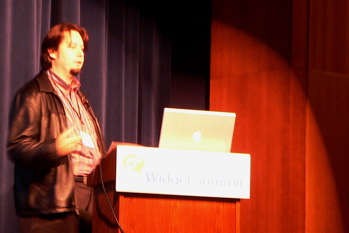
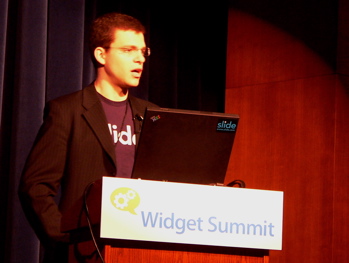
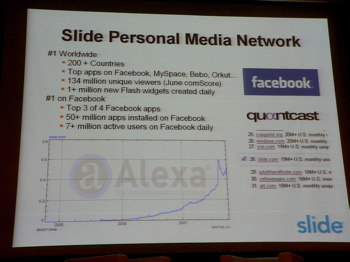
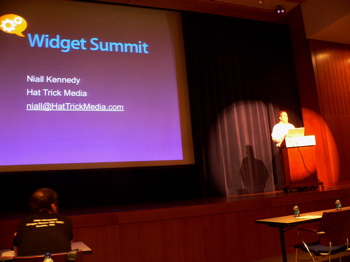


Recent Comments